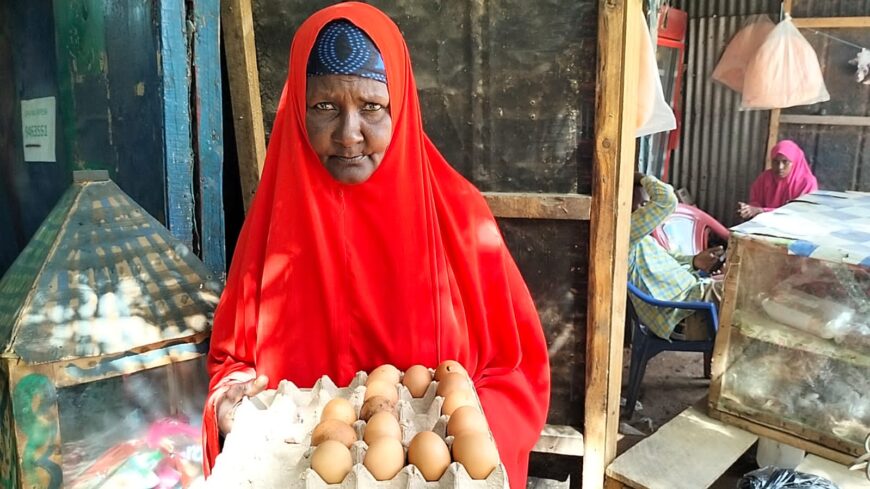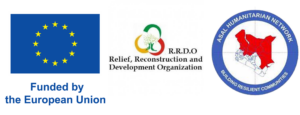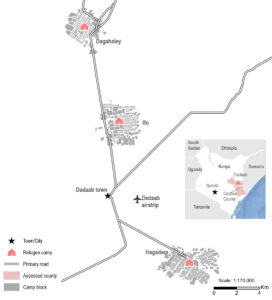| Kenya began its voluntary refugee repatriation program in 2017, resulting in over 85,000 Somali refugees returning to their country of origin. However, the recent drought has led to many returnees to re-enter Kenya in search of humanitarian aid. While the numbers are on the rise, with the fifth failed rainy season, the dissolution of Kenya’s Department of Refugee Affairs has led to a stall in the registration of refugees. This leaves those who have not been previously registered without refugee status, and therefore with limited access to humanitarian assistance. |
| For more than three decades Somalia has been experiencing civil unrest and insecurity, leading to the forced migrations of hundreds of thousands of its citizens to more peaceful parts of the country or to neighbouring countries. Most migrants are at high risk of sexual abuse, assault, violence, and have very limited access to the necessities of life.
In addition, the Dadaab inter-agency forum expects news arrivals to reach 66,000 people in 2023, a figure that also includes undocumented refugees. |
Crossing Borders for Humanitarian Aid
Zamzam is one of the many Somali asylum seekers who crossed the border from the Lower Jubba region of Somalia and now lives in the Dadaab refugee complex in Garissa County, Kenya.
She left her home eight years ago because of the conflict caused by armed militia and the lack of food, exacerbated by the drought that has ravaged the Horn of Africa.
When she left, her husband stayed behind, and she has not heard from him since. She believes that he may have been a victim of terrorist attack as he continued his daily activities in Somalia.
Zamzam and her seven children live in Hagadera camp, in a single-roomed mud house with barely enough space to lie down at night.

A Second Chance in Getting a Livelihood
The Kenya Cash Consortium, funded by the European Union, and led by ACTED and the ASAL Humanitarian Network (AHN), in partnership with IMPACT initiatives, Relief Reconstruction and Development Organization (RRDO), provided thousands of unregistered refugees like Zamzam with cash to sustain their basic needs while experiencing a crisis.
Zamzam is one of the 1,055 unregistered refugee families in the Dadaab camp who received six rounds of multi-purpose cash. She was identified during an assessment carried out by RRDO, which seeks to identify the most vulnerable asylum seekers who do not receive regular humanitarian assistance. Zamzam qualified for a monthly unconditional cash grant of $48.
She used part of the cash she received to cover her family’s daily needs, including food and medicine and saved the rest to invest in a business.
Before receiving the financial assistance, her 10-year-old son would spend up to six hours a day selling eggs at a local market to earn extra income for the family.
I never thought I could get cash assistance to support my family
This EU-funded project is the only one to provide cash to unregistered refugees in the Dadaab camps. Cash assistance empowers beneficiaries to get economic purchasing power, which enables families to spend it on their most vital needs like food and medicine.
With predictions of a sixth failed rainy season in Somalia, cross-border disaster displacements into Kenya will increase, requiring a scale-up of the emergency response for 2023.

 Established in 1991, Dadaab refugee camp was one of the largest IDP sites in Kenya. It also became the settling place for most of the people forced to flee Somalia. In 2022, Dadaab hosted more than
Established in 1991, Dadaab refugee camp was one of the largest IDP sites in Kenya. It also became the settling place for most of the people forced to flee Somalia. In 2022, Dadaab hosted more than